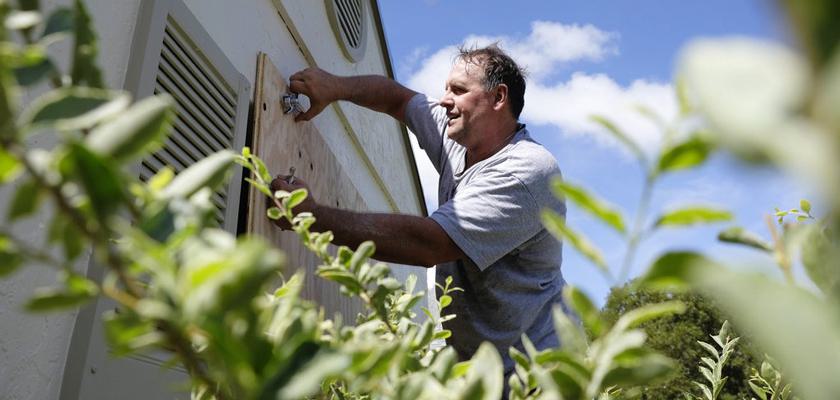This week is Hurricane Preparedness Week, according to the National Oceanic and Atmospheric Administration (NOAA).
Meteorologist Jim Stefkovich of the Alabama Emergency Management Agency said the National Weather Service hurricane forecast will come in a couple of weeks but that he thinks it will be another active hurricane season.
NOAA encourages individuals to determine their hurricane risk and if they live in a hurricane evacuation zone. They also suggest reviewing and updating insurance policies and making lists of items to keep track of emergency supplies.
Determine risk
NOAA advises identifying the hazards you are susceptible to in your area in order to determine your risk. From there, you can adequately prepare for wind and water hazards.
Hurricanes don’t just affect coastal areas. They can reach hundreds of miles inland, and just because a storm is weaker does not mean it can’t impact you or your home.
Evacuation plans
NOAA said those in a hurricane evacuation zone, or even in a flood-prone area or mobile home outside a hurricane evacuation zone, should prepare a plan in advance if they need to evacuate.
Residents in these areas should determine where they will go, preferably with a friend or family that lives in a well-built home in an area not prone to flooding. Long-distance travel is unnecessary, and sometimes the safest place to stay may be at home.
NOAA also advises accounting for pets in your evacuation plan and listening to local officials as plans may need to be adjusted based on the latest guidelines.
Assemble disaster supplies
Whether evacuating or not, NOAA said supplies will be needed to get through a severe storm and prepare for a potentially disastrous aftermath.
NOAA recommends purchasing enough non-perishable food, water and medicine to last each person in your household at least three days. You should store more than a 3-day supply of water if possible, as electricity and water could be out following a storm.
NOAA also recommends keeping cash on hand or at your house and acquiring a battery-powered radio, flashlights and a portable crank or solar-powered USB charger for cell phones.
Individuals who want to learn more about what to include in an emergency disaster kit can visit the Federal Emergency Management Agency (FEMA) website here.
Insurance
NOAA suggests individuals call their insurance company or agent to ask for an insurance check-up to determine if their current coverage is adequate to protect their homes and other belongings from storm damage. Renter's insurance usually does not cover flooring, so renters will need a separate policy.
Prepare your home
NOAA recommends ensuring your home is in good repair and using local hurricane building code specifications to determine if it can withstand wind impacts.
Plywood, steel or aluminum panels can be used to board up windows and doors if needed.
NOAA said the garage door is the most vulnerable part of the home and must therefore be able to withstand winds.
Renters should work with their landlords to prepare for storms.
“The Gulf of Mexico is the favored area for tropical activity from late May into June because the water is much warmer than the Atlantic Ocean,” Stefkovich said. “In addition, these systems can develop both quickly and near the coast, leaving little time for preparation or evacuation. That’s why it’s important to be proactive now and be prepared.”
For more information about preparing for hurricane season, you can visit the NOAA website here.
To connect with the author of this story, or to comment, email will.blakely@1819news.com.
Don’t miss out! Subscribe to our newsletter and get our top stories every weekday morning.









